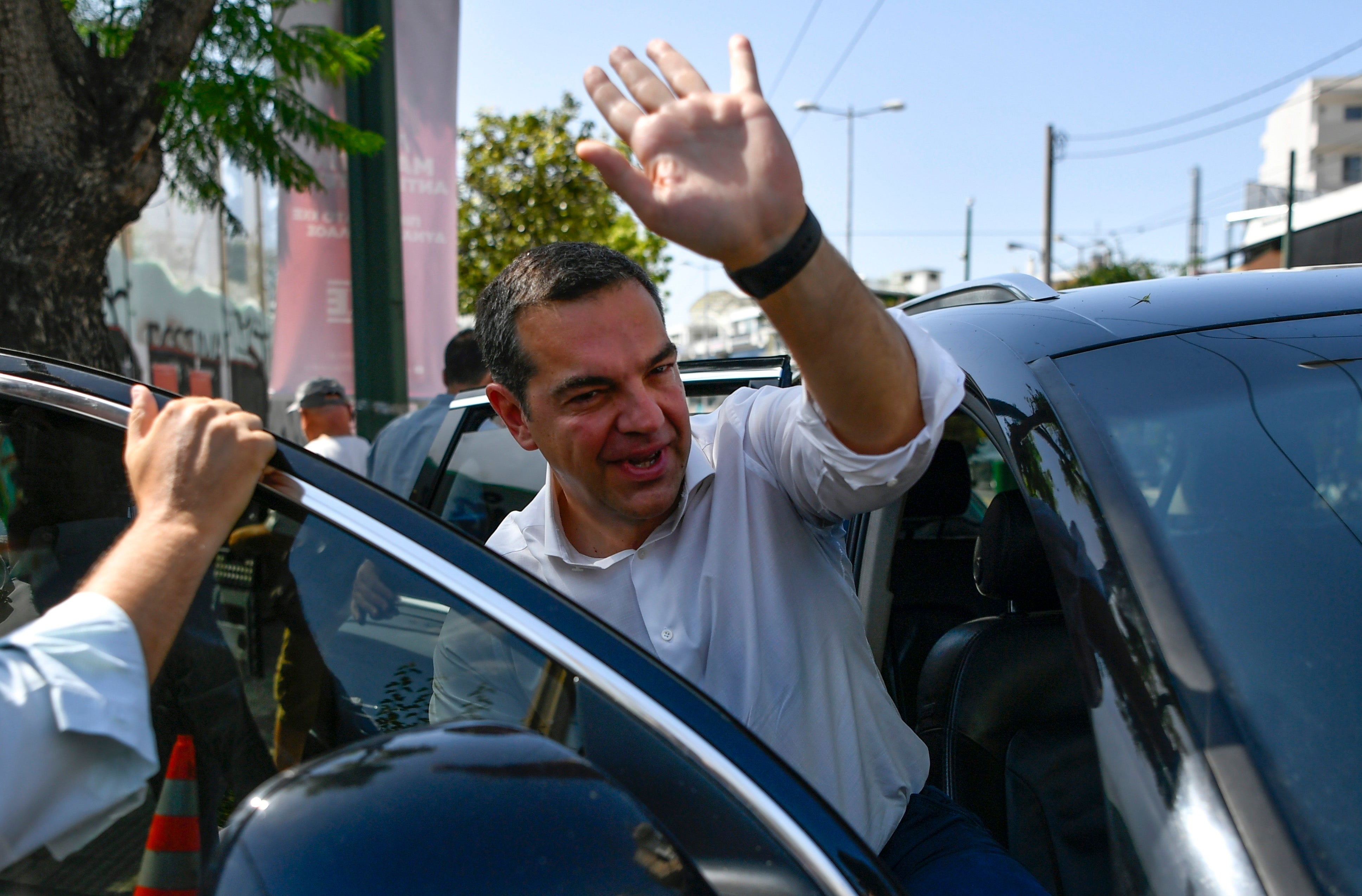Greece’s left-wing opposition leader, Alexis Tsipras, stepping down after crushing election defeat
Greece’s left-wing opposition leader, Alexis Tsipras has announced his decision to step down after a crushing election defeat

Your support helps us to tell the story
From reproductive rights to climate change to Big Tech, The Independent is on the ground when the story is developing. Whether it's investigating the financials of Elon Musk's pro-Trump PAC or producing our latest documentary, 'The A Word', which shines a light on the American women fighting for reproductive rights, we know how important it is to parse out the facts from the messaging.
At such a critical moment in US history, we need reporters on the ground. Your donation allows us to keep sending journalists to speak to both sides of the story.
The Independent is trusted by Americans across the entire political spectrum. And unlike many other quality news outlets, we choose not to lock Americans out of our reporting and analysis with paywalls. We believe quality journalism should be available to everyone, paid for by those who can afford it.
Your support makes all the difference.Greece’s left-wing opposition leader, Alexis Tsipras, announced his decision Thursday to step down after a crushing election defeat.
Tsipras, 48, served as Greece's prime minister from 2015 to 2019 during politically tumultuous years as the country struggled to remain in the euro zone and end a series of international bailouts.
In Sunday’s general election, Tsipras’ left-wing Syriza party received just under 18% of the vote — losing almost half its support over the past four years — while Prime Minister Kyriakos Mitsotakis' winning New Democracy party topped 40%. “The party must take difficult and courageous decisions, which are called upon to serve a new vision. This obviously concerns me too,” Tsipras said in a televised address. “I have therefore decided to propose the election of a new leadership by the members of the party, as stipulated in the party statues, with immediate recourse. Of course I will not be a candidate,” he said. “I make no secret of the fact that this is a painful decision.”
Tsipras, who headed the party since 2012, is expected to stay on as leader until his successor is elected by the party membership. No prominent members of the party has publicly called on Tsipras to step down after the election defeat, though Euclid Tsakalotos, a former Syriza finance minister, had urged him to reflect on the results and “take the necessary actions.” Effie Achtsioglou, a 38-year-old former social security minister, has received support from a section of the party to seek a leadership role but has not publicly discussed her plans. Commentators blamed Syriza's poor election result on the party's largely-negative campaign, the resurgence of the traditionally-strong Socialist party Pasok, and the appearance of splinter parties headed by former Tsipras allies. Largely rooted in fierce political confrontations during the 2010-2018 international bailouts, Syriza and the Socialists have been unable reach any agreement on potential collaboration, despite support from some senior members in both parties.